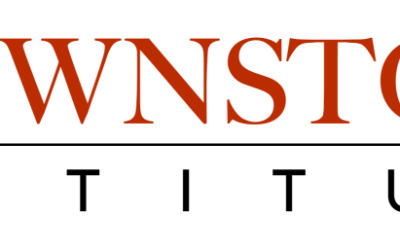Three decades is a long time to stick diligently with any task. But when the job involves the struggle for liberty in heavily socialist Canada, 30 years might be likened to an eternity, and not, it should be stressed, in the realm promised the saintly.
Vancouver’s Fraser Institute has engaged in just such a pursuit since 1974 and last month, its founding executive director, Michael Walker, stepped down. His “retirement” — lefties ought not get excited; he’s not going away — is a good time to reflect on how far North America has come since the statist ’70s in the battle against monster government.
It is also an opportunity to recognize the monumental contributions of one man to the cause of freedom, not just on this continent as the leader of Canada’s premier free-market think tank, but around the world. Mr. Walker’s career is a tutorial in measuring and marketing ideas that matter.
It’s also worth noting that Americans owe Mr. Walker special gratitude: The institute’s Canadian health-care studies may be the most important work to expose the costs, vulnerabilities and human suffering of the single-payer system that Hillary Clinton once tried to foist on the American public.
To appreciate the size and scope of the task young Mr. Walker took on 31 years ago, it is necessary to do some time travel, back to the dark ages of the mid-1970s, when Pierre Trudeau was prime minister and big government was a Canadian religion. Government control over key sectors of the economy was practically settled law, as were high marginal tax rates. Collectivism and “fairness” were cloaked in moral righteousness. That anyone, no less a Canadian, would challenge these precepts, or any other presumptions of an all powerful state, was heresy. Still, Mr. Walker was foolhardy enough to challenge Goliath in what had to seem like very long odds.
In a September interview with the institute’s Fraser Forum, Mr. Walker spoke about both the tactics and the strategy that he believes led to Fraser’s success. “Privatization of nationalized assets and privatizing the delivery of services from government, in which the institute has been a global leader, was the first important step,” he said. Fraser can also claim a key role in pressuring politicians to curtail spending and reduce the size of government relative to the economy. Regulatory reform, Mr. Walker said, “is still a work in progress.”
A good deal of Fraser’s success can be understood by Mr. Walker’s focus on outcomes. “I have been driven by a sense of wanting to get better outcomes than the ones we have. Poverty was pervasive in Newfoundland when I was growing up and I wanted to do something about that,” he said.
But even with an eye on outcomes, the radical Fraserites might have failed badly if it weren’t for the Walker obsession with measuring government performance. As he noted in the Forum interview, a debate about government policy isn’t likely to be settled around values. But when there is “objective measurement, resolution emerges.”
No Fraser output better illustrates the power of this notion than the institute’s work on health care. In 1990 Fraser began its annual report on waiting time for medical care. “Waiting Your Turn, Hospital Waiting Lists in Canada” has laid bare the dirty little secret of the Canadian health system: that care is rationed through time rather than price.
The 14-year track record shows the decline in service: From general practitioner referral to treatment the average wait has almost doubled to 17.9 weeks in 2004 from 9.3 weeks in 1990.
In June, the Canadian Supreme Court ruled the ban on private health care insurance unconstitutional. The court majority cited lengthy waiting lists as its reason for ruling that the system denied Canadians basic rights. Mr. Walker commented that this “opened up the possibility for long-suffering patients to escape the grip of a public sector health monopoly.”
John Goodman, president of the Dallas-based National Center for Policy Analysis, and the father of medical savings accounts, praises Mr. Walker as an “intellectual entrepreneur” who has delivered “pioneering innovations” in measuring outcomes. In health care, he points out, “waiting list measurements had never been done anywhere in the world.”
Today the institute also publishes report cards on the performance of government schools which are helping illuminate weaknesses in public education.
The power of data and reporting cannot be underestimated. But it all might have been buried in a dusty office somewhere if not for the Walker spirit and passion for altering outcomes. “The thought of improving everybody’s prospects by getting tax policy right or controlling public expenditure gives me goose bumps,” he told the Forum.
That “everybody” he refers to is not limited to Canadians. Mr. Walker pioneered the concept of measuring economic freedom and Fraser now publishes a global economic freedom index. Mr. Walker has been influential in developing similar indices in China, India, Argentina and the Arab world.
At home his enthusiasm and generosity have touched a new generation of Canadians. Michel Kelly-Gagnon, president of the Montreal Economic Institute, says that when he was getting his MEI up and running in 1999, “Mike was very generous, giving advice and sharing his experiences. Along the way he has always been helpful to us.” The MEI president notes that Mr. Walker is “a force of nature” in that “physically he could travel from Vancouver to Montreal to Paris and onto Beijing, never stopping and all the time being upbeat and joyful about it.”
It may be that this story can be best understood by appreciating Mr. Walker’s optimism. “I firmly believe that you become what you think about, and that is as true for countries as it is for individuals,” he told the Forum. “Any objective assessment of our past success in shaping Canada’s future must conclude that we have a great opportunity to make a future that continuously improves, and I think that we are going to get better and better at that.” Big government, take cover!


